Over the past decade I have been a practice owner and practice manager, as well as a consultant to hundreds of medical service practices of varying scopes nationwide and one of the most common questions I am asked is “How do I hire the right clinical staff?”.
While there are many factors to consider when hiring clinical staff such as; education, experience, professional licensure, “culture fit”, and more there are deeper questions that must be asked in the medical space. In this industry we deal with many regulatory bodies and governing agencies specific to our field such as The Joint Commission (JCAHO), The Agency for Healthcare Administration (AHCA), Office of Inspector General (OIG), and The Food & Drug Administration (FDA), just to name a few… and this is on top of the “usual suspects” such as the Occupational Safety & Health Administration (OSHA).
Additionally, we have countless legislative requirements to comply with such as The Healthcare Insurance Portability & Accountability Act (HIPPA), The Health Information Technology for Economic and Clinical Health (HITECH), The Physician Quality Reporting System (PQRS), The Meaningful Use section of The Affordable Care Act (or “Obamacare” as it is more commonly referred to), and more… In an industry were the stakes are so high (very literally “life and death” at times) and the penalties for data breach, ethics violations, and other infractions so severe you MUST weed out new hire candidates that have the potential to put your organization at risk, or cause damage. There is no easy way to do this other than asking the “hard questions” some of which I will share below.
*If the above agencies or listed regulations are unfamiliar to you and you are a practice owner, administrator, or Physician please call 855-854-6332 or send a request form right now for a FREE compliance evaluation. Failure to comply with these agencies and regulations can result in reduction of insurance payments from federally funded programs such as Medicare and Medicaid, suspension or revocation of your clinic or professional license, fines, penalties, and civil or criminal prosecution. Integrative Practice Solutions, Inc. and I specialize in helping individuals and organizations navigate these oft complex waters with a proven track record of success.

When it comes to hiring clinical licensed staff I have interviewed for positions ranging from Nurse to Neurosurgeon, yet regardless of the level of license the following questions are always necessary to ask:
Disciplinary Actions
Looking into the cleanliness of one’s medical or nursing license is an absolute must during the hiring process. Not only will past license actions affect the credibility of the institution they represent but this can also affect the ability to credential the new hire with medical and nursing boards, as well as with third party insurance payers.
“Have you ever received a warning letter or been cited for misconduct by any state or federal licensing board, professional board or association? If yes, please explain in detail.”
Board Certification
It is not safe to assume that the healthcare provider sitting across from you during the interview is Board Certified just because they demonstrate a command of the subject matter or area of practice. In the past Board Certification was not a “make or break” credential for a Physician and many could find quality employment without it. However in today’s rapidly evolving healthcare marketplace effected by numerous legislative actions, coding determinations and formularies, even mergers and acquisitions of smaller payers by the industry giants, it is a must have for most positions. Why?
Certain major third party payers, most notably Blue Cross & Blue Shield (BCBS), do not allow new providers to participate in their network unless they have Board Certification. If your healthcare clinic or facility accepts Medicare and Medicaid only, not to worry Board Certification is not a requirement for new providers with Federal Payers (yet). However, if a significant portion of your payer mix consists of private payers ask this question during the interview and follow up by verifying this status with the state Nursing Board or Medical Board.
“Are you presently board certified in (insert specialty)?
If the new hire candidate is not presently board certified it may be worth asking follow up questions to ascertain where they stand in this matter. A clinician that is not yet certified, but may soon be, can be a relative bargain acquisition to the practice, group, or facility.
“Do you plan to sit for your board examination and when?”
“If you have taken the boards in the past and failed, what was your most recent score?”
Network Status
Clinicians that are actively, or have previously been credentialed with insurance payers, present many advantages to those that have not. If a clinician is actively credentialed your organization may have the option of billing under the provider’s individual provider ID number (PIN) with private payers, or their Provider Transaction Access Number (PTAN) with the Centers for Medicare and Medicaid Services. Also, if a clinician is actively credentialed under a particular specialty there is no need to ascertain if the panel for said specialty is open or closed with the third party payer.
“Are you presently an in-network provider with any third party payers, Medicare, or Medicaid? If more than one, please list.”

If the applicant does not currently hold network participating status, it is worth exploring if the applicant has ever held this status in the past as many insurers such as Medicare will not treat a former participating provider as a new applicant (in this case on page 3 of Medicare form 855i check box three “reactivating” not box one “new enrollee”). This simple difference can reduce provider credentialing time from months to weeks resulting in significantly enhanced billing potential for the host facility. *If you are a group, facility, or do not plan to bill under the provider’s individual policy with Medicare you will also have to file a Medicare form 855r Application for Reassignment of Medicare Benefits.
“Have you ever been credentialed as an in-network provider with any third party payers, Medicare, or Medicaid? If more than one, please list.”
You may find more information on, and copies of Medicare and Medicaid provider credentialing forms here:
MEDICARE/MEDICARE CREDENTIALING FORMS
*If your practice, group, or facility requires credentialing services, or detailed advice on insurance credentialing, please contact IPS, Inc. at 855-854-6332 or visit www.integrativepracticesolutions.com for more information.
If your practice or facility accepts Workman’s Compensation claims, many states such as Pennsylvania, Georgia and Virginia, require employers to post and provide Physician Panels for injured workers to choose from for their care. These panels can be difficult to gain entry to, and as with traditional insurance, some panels may be temporarily or permanently closed. For this reason a clinician with existing participation on local, regional, or national Workman’s Compensation panels can be a highly valuable asset to many practices, groups, and facilities.
“Are you presently a member of any local, regional, or national Workman’s Compensation panels? If yes, please list the panels and if they are affiliated with any local employers.”
As with board certification, if the applicant is not actively credentialed it may be worthwhile to hire the candidate in a non-billable capacity to build your bench and have access to a future credentialed provider. Additionally, some clinicians such as Nurse Practitioners and Physician Assistants can be billed “Incident To” a supervising physician. In this case the supervisory physician’s credentials are submitted for billing to the third party payer and therefore the claim will fall under the oversight physician’s network status, not the “Incident To” provider.
*Please be advised “Incident To” billing is an extraordinarily complex process and requires a multitude of rules and regulations to be followed. Additionally, these guidelines vary widely by state, as well as by the type of mid-level provider being utilized.
Please contact Integrative Practice Solutions, Inc. at 855-854-6332 or request contact, alternatively, consult with a licensed Healthcare Attorney in your state.
CAQH – stands for the Council for Affordable Quality Healthcare. It is an American non-profit organization that collaborates with healthcare providers, trade associations, and insurers to catalog licensed healthcare providers relevant data for the purpose of credentialing with certain third party insurance payers and select Workman’s Comp Panels. The data cataloged includes the provider’s medical license number, continuing education requirements met, PIN, and other information that can “fast track” the credentialing process for your practice, group, or facility. As such I always ask the new hire candidate:
“Do you presently maintain an up to date CAQH account? If yes, you may be asked to provide your login credentials to our insurance department upon hire for credentialing purposes. Do you object to providing this data if offered the position of (insert job title)?”
Litigation History (Medical Malpractice)
While this matter will be addressed in most background checks, asking the question provides the new hire candidate an opportunity to explain a past litigation if its outcome was negative. Additionally, if a candidate does not disclose a past litigation history and one is discovered upon the background check it is a great means to disqualify what could be a dishonest and potentially troublesome applicant from employment consideration. I recommending asking this question specifically as most employment applications only address the applicant’s criminal legal history.
Based upon its severity claims of Medical Malpractice can be civil or criminal. The impact of this question goes beyond assessing ones honesty, it also effects the potential future employment costs of the candidate as those with past Malpractice claims will be more costly to insure on future policies. That said this can be mitigated by asking the applicant to carry their own individual malpractice policy in the event they do have a negative record and you still wish to extend an offer of employment to them (this potential solution may not be applicable if your organization carries a group malpractice policy).
“Have you ever been threatened with, or faced litigation for Medical Malpractice or misconduct? If yes, what was the outcome?”
License Status
This one is a bit of a “no-brainer” but I wanted to include it anyway. While board certification is typically performed at a national level, Nursing and Medical licenses, much like firearms permits, are state specific. However unlike firearms permits, no state will honor another states Nursing, Radiographic, Medical, or Chiropractic licenses. Therefore it is important to ask if the candidate is licensed in your particular state.
“Are you presently licensed to practice (insert specialty) in the state of (insert state)? If no, have you applied with the state for your license and passed any and all associated requirements including but not limited to examination?”
If the candidate is not licensed in the state of your practice, group, or facility the opportunity may present itself to hire the candidate in a non-licensed capacity to build your bench and have access to a future licensed provider. You may also benefit from extending an internship, residency, or preceptorship if the applicant is a recent graduate. This is especially valuable if your practice, group, or facility has plans for future expansion.
Hospital Privileges
This is another factor that will affect your ability to credential the new medical provider with certain third party payers. Many payers, again BCBS is a prime example, do not offer network participation status to new providers that do not have local hospital privileges. If you administer or own a facility setting, such as an Ambulatory Surgical Center (ASC), this question becomes even more critical as admission privileges are required to legally performance certain outpatient surgical and pain management procedures.
“Do you currently hold privileges at a local hospital? If yes, what level of privileges and at what hospitals do you hold them?”
The types of privileges the physician may hold include:
Admitting – allow a doctor to admit a patient to the hospital.
Courtesy – allow a doctor to occasionally admit and/or to visit and treat patients in the hospital.
Surgical – allow a doctor to perform surgery in the hospital’s operating room, outpatient surgery area, and/or associated Ambulatory Surgical Centers (ASC’s).
If the applicant does not currently hold hospital privileges and this is a necessary requirement for the position they can be gained through application. That said as with any credentialing process, there are limiting factors. Residency restrictions can be implied by the hospital offering privileges, among other requirements. Additionally, most hospital have a privileges committee that meets at specific intervals of time, frequency and duration. These variables can significantly delay a new application for privileges so we recommend you contact your local hospital administrator and ask these questions prior to making a hiring decision on an applicant without existing privileges.
Should you have to request privileges for a provider in my personal experience I have found enhanced speed and outcomes working with smaller community hospitals, religious hospitals, rural hospitals (RHC’s), and the like that need additional admitting providers to fill their beds as badly as you may need privileges to credential with certain insurance payers. Also worth noting some large hospitals such as University of Pittsburg Medical Center (UPMC) for example, own and operate their own health plans (health insurance companies). In most cases if you do not have privileges at the associated hospital you will not meet credentialing requirements to accept their health plans as a network provider.N
Restrictive Covenants
While this question is important regardless of what position is being interviewed for, it becomes even more critical when dealing with clinical staff as some may continue to hold other positions, active or advisory, even after accepting the position you are hiring for. Additionally, some restrictive covenants can “survive” termination, meaning even though the provider may no longer be actively employed by the former employer it still holds dominion over where and/or what type of position the clinician may hold elsewhere. This becomes especially true for hospitalists, or those that have recently left a large group (in these cases it is common for a separation agreement to have been executed, which I like to request a copy of).
Because of these nuances I like to pose a series of questions as follows:
“Are you currently employed by any other healthcare facility, group, hospital, ASC, home health agency, nursing home or ALF (Assisted Living Facility), pharmaceutical company, pharmacy, ORF (Outpatient Rehabilitation Facility), University, private organization, or other?”
“Are you currently or have you even been a party to a clinical research study, case study, trial, or similar?”
“Do you sit on any board of directors, advisory’s boards, or hold any other administrative or consultative position with any agency, organization, or employer private, public, or otherwise with or without pay?”
“Do you currently engage in private practice, own, or operate your own company providing health care services, administrative, or consultative services in any capacity?”
“Is your future employment restricted or diminished in any capacity by any current or former non-compete, separation agreement, or other restrictive covenants, of any contract written, verbal, or otherwise conveyed? If yes, please provide a copy of said covenant for consideration and inclusion in your personnel file should this position be extended to you.”
I hope you find the contents of this article helpful as you conduct future interviews and hiring processes for medical providers. That being said, this is a complex topic and the information contained in this article is only a sample of the knowledge I have gained over more than a decade of professional experience in this field. If you have additional questions, concerns, or if you require assistance in recruiting, interviewing, hiring, training, credentialing, or billing for medical providers please call 855-854-6332 or request a no-cost consultation (and some friendly advice).




